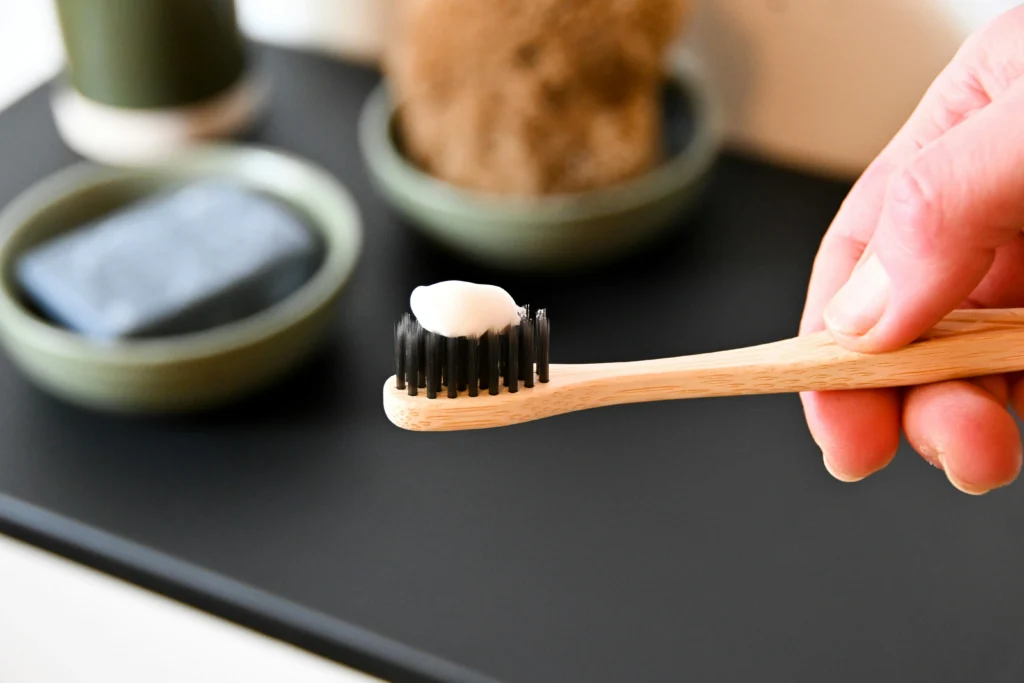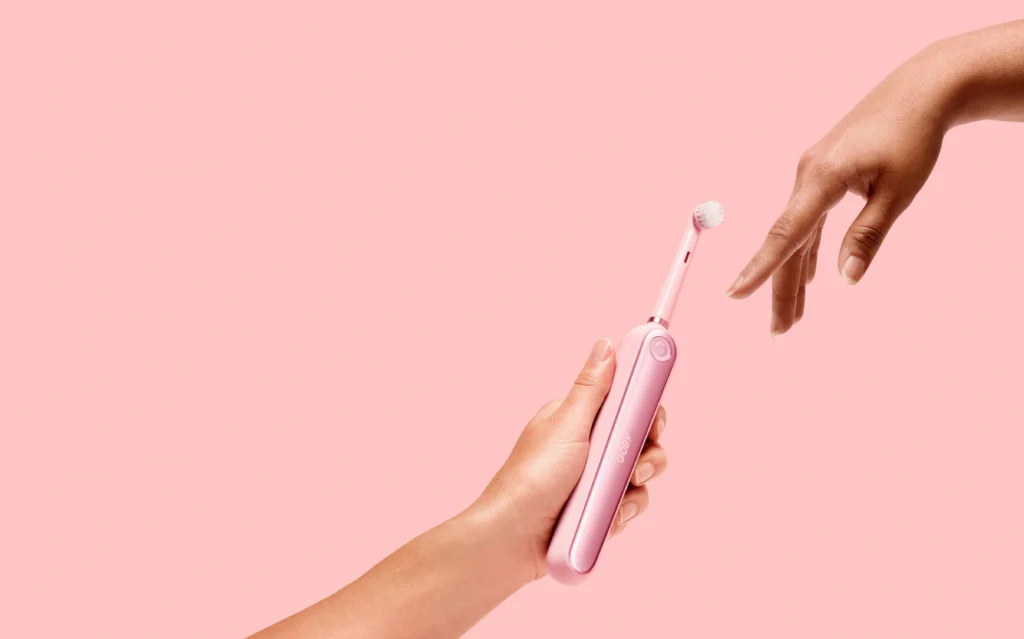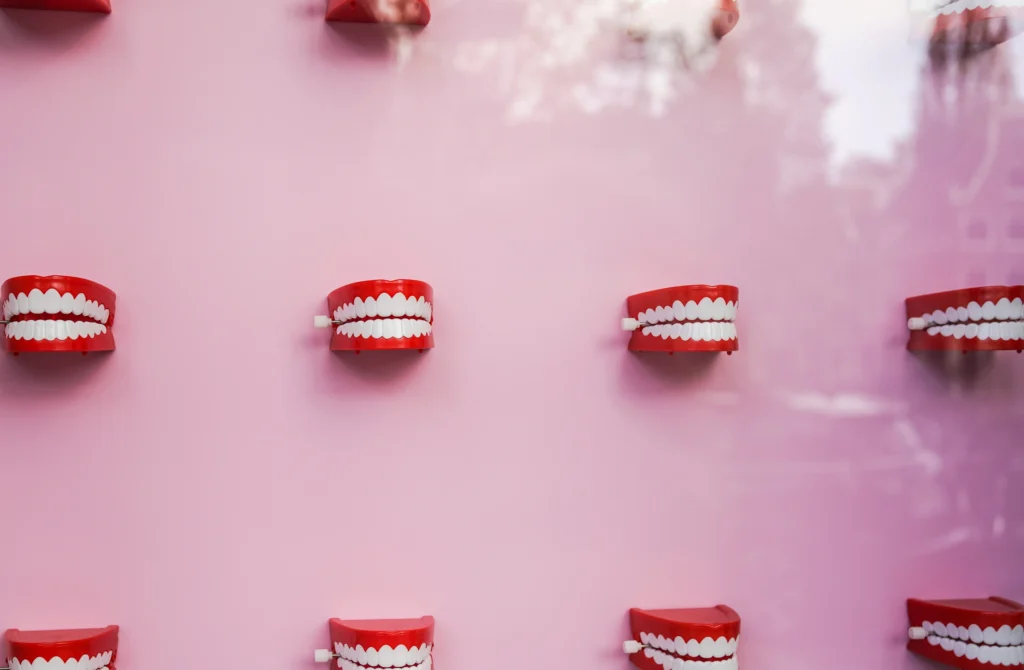Caring for a loved one with dementia means navigating daily challenges, and oral hygiene is one of the most overlooked. Families with relatives who suffer from dementia often ask us how to brush their loved one’s teeth without causing distress or discomfort. The truth is, brushing teeth dementia patients struggle with requires patience, creativity, and a compassionate approach. Left unaddressed, poor dental hygiene can lead to gum infections, tooth loss, and even worsen overall health.
At Dental Home Services, we specialize in providing dental care to patients who suffer with dementia and who can no longer manage oral care on their own. Our experienced mobile dentists travel across New Jersey to provide professional, in-home support that preserves dignity and comfort.
👉 Make oral care easier today. Contact us or call 1-800-842-4663 to schedule an in-home dental visit.
Dementia and Brushing Teeth: Why It’s Different

For patients living with dementia, brushing teeth can trigger confusion, resistance, or even fear. According to the National Institute of Dental and Craniofacial Research, common issues include forgetting what a toothbrush is for, being startled by water or toothpaste foam, or clenching the mouth shut.
These behaviors don’t mean oral care is impossible. Instead, they highlight the importance of tailoring routines. By understanding dementia brushing teeth challenges, caregivers can develop strategies that work with—not against—the patient’s abilities.
Our team has years of experience providing dental care to patients with dementia in homes and in assisted living residences. We adapt our techniques to fit the stage of dementia, ensuring patients stay as comfortable as possible while maintaining their dental health.
How to Brush the Teeth of Patient Who Has Dementia: Step-By-Step Guidance
When caregivers ask how to brush the teeth of a loved one with dementia without conflict, we recommend this simplified approach:
- Explain gently – Speak slowly and show the toothbrush so it feels familiar.
- Use hand-under-hand guidance – Place your hand over the patient’s and guide the brush, letting them feel some control.
- Choose the right brush – A small, soft-bristled toothbrush is less intimidating and easier to tolerate.
- Position safely – Stand slightly to the side to avoid resistance and to support the patient’s head if needed.
- Go step by step – Brush one small area at a time, pausing often, and reassure throughout.
This method not only improves cooperation but also reduces the stress that often comes with brushing teeth dementia patients resist.
Practical Tips for Brushing Teeth for Dementia Patients

The NIDCR guide offers helpful adjustments caregivers can make daily. Here are a few that align with what we recommend at Dental Home Services:
- Model the behavior – Brush your own teeth at the same time so the patient can mimic your actions.
- Use short, simple phrases – “Open your mouth” or “Brush here” are more effective than long instructions.
- Switch tools if needed – Foam swabs or electric toothbrushes can sometimes be better tolerated.
- Try different times of day – If mornings are difficult, try brushing in the evening when the patient is calmer.
- Address dry mouth – A common issue in dementia patients. Encourage water sips or sugar-free gum to help keep the mouth moist.
How Dental Health and Dementia Are Connected
There’s a strong link between dental health and overall health in dementia patients. Gum disease, untreated cavities, and infections can make eating painful, leading to poor nutrition. Infections can also complicate other medical conditions.
The challenge is that brushing teeth for dementia patients becomes harder as cognitive decline progresses. That’s why professional support matters. Regular visits from a geriatric dentist can help families stay ahead of problems.
Our mobile dental team provides care across New Jersey, handling everything from denture adjustments to routine cleanings, so families don’t have to manage it alone.
What Caregivers Can Do Beyond Brushing
While brushing is essential, dementia dental care requires a wider routine:
- Clean dentures nightly using safe solutions like those we cover in our guide to adhesives for dentures.
- Replace worn dentures before sores or infections develop. Explore our options for complete dentures or removable dentures.
- Look for warning signs – bleeding gums, bad breath, or refusal to eat may indicate dental pain.
- Offer comfort – sometimes letting the patient hold the toothbrush or swab helps them feel more secure.
These small steps make a big difference in maintaining dignity while supporting brushing teeth dementia patients daily.
The Role of Professional Dementia Dental Care
Even the most dedicated caregiver can feel overwhelmed by the challenges of working with a patient with dementia and helping to provide proper oral hygiene. That’s where professional in-home dental support comes in. At Dental Home Services, we’ve built our practice around bringing the dental office to patients who can’t get there themselves.
We offer:
- Dentist home visits anywhere in New Jersey.
- Specialized approaches for elderly patients with dementia or Alzheimer’s.
- Compassionate care that balances medical needs with emotional comfort.
- Reviews from families who trust us to care for their loved ones (read them here).
👉 Give your loved one the comfort of professional dental care at home. Schedule a visit today.
Brushing Teeth Isn’t Just About Hygiene for Dementia Patients

Learning how to help patients with dementia brush their teeth isn’t just about oral hygiene—it’s about protecting overall health and preserving dignity. From hand-over-hand techniques to trying alternative tools, caregivers can make daily brushing less stressful.
But you don’t have to do it alone. With Dental Home Services, compassionate professional help is always within reach. We’re available across New Jersey, ready to step in when daily care becomes overwhelming.
👉 Support your loved one’s dignity and health. Call +1-800-842-4663 or book a visit online.
Brushing Teeth Dementia Patients: Common Questions
Why do dementia patients resist brushing?
Patients may forget the purpose of brushing or become overwhelmed by the process. Breaking it into smaller steps, using calm words, and modeling brushing often helps.
What if teeth brushing causes a dementia patient to be come agitated?
Try distraction, such as playing calming music, or attempt again later in the day. If challenges continue, our mobile dental services can provide professional support.
How often should brushing teeth for dementia patients happen?
At least twice a day, just like for anyone else. If full brushing is too difficult, even once a day with fluoride toothpaste is better than none.
Can dentures make oral care harder?
Yes. Poorly fitting dentures can cause pain and refusal to brush. We specialize in denture repairs and denture adjustments to solve these issues.
What if I can’t manage brushing anymore?
You’re not alone. Our team of visiting dentists covers all of New Jersey and nearby New York, including Staten Island, Orange County, and Rockland County.
Disclaimer: This article is for informational purposes only and should not replace professional dental or medical advice. Always consult with a qualified provider for personalized care.

